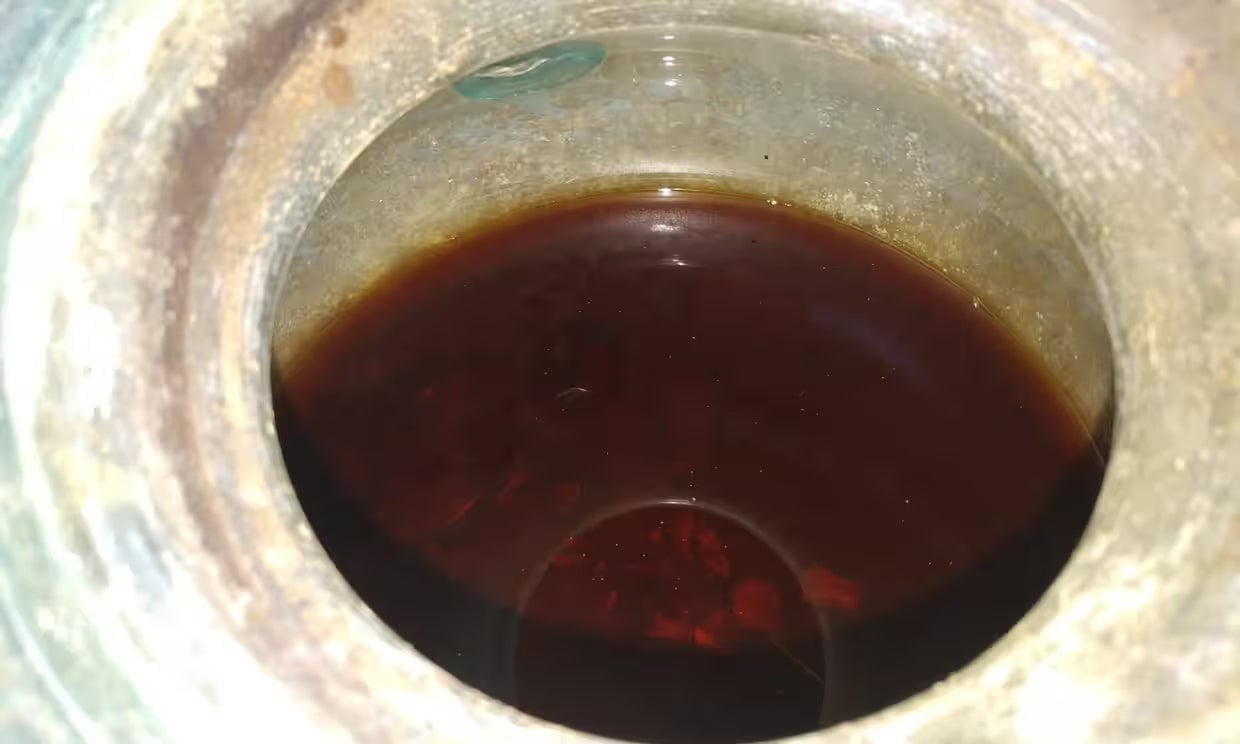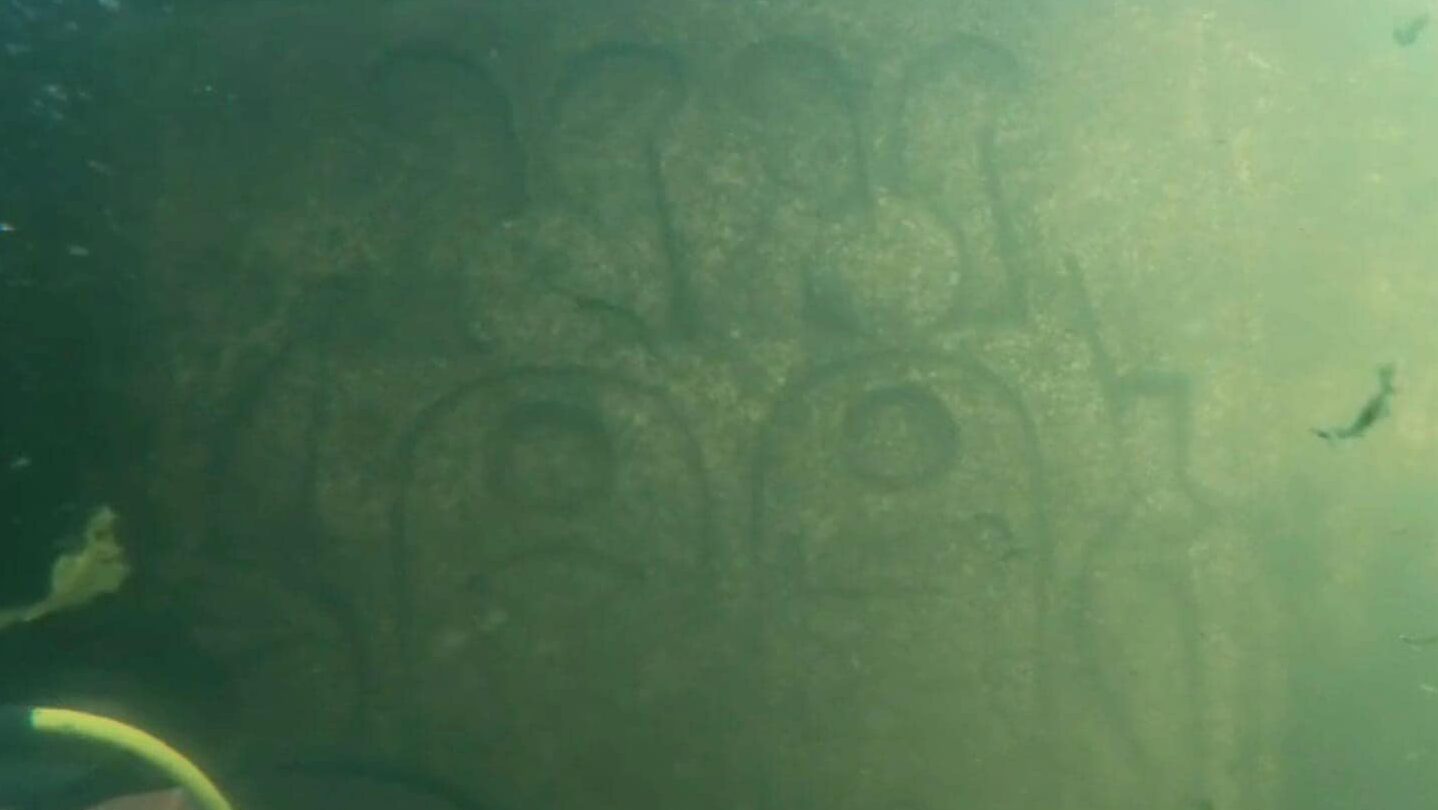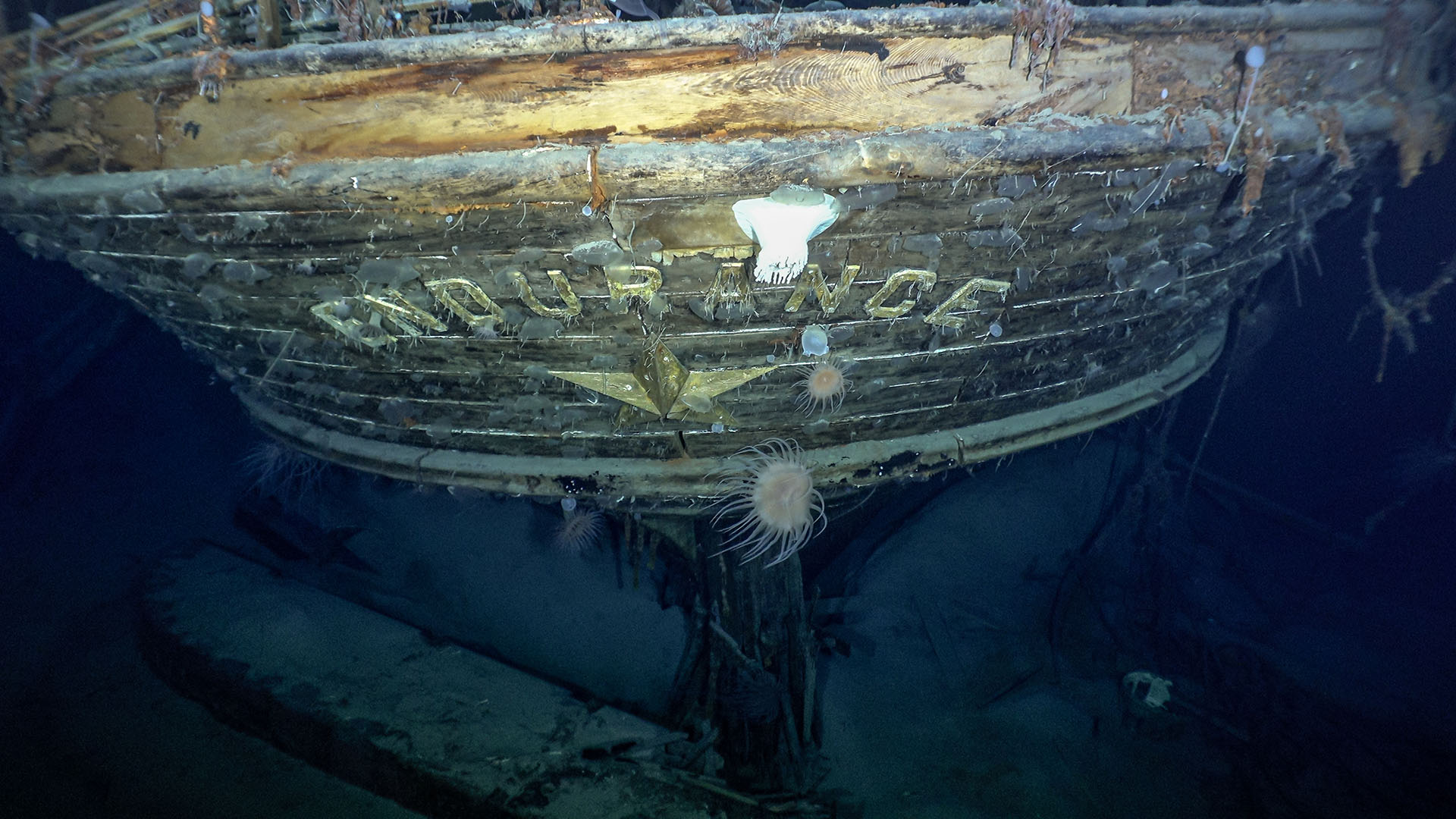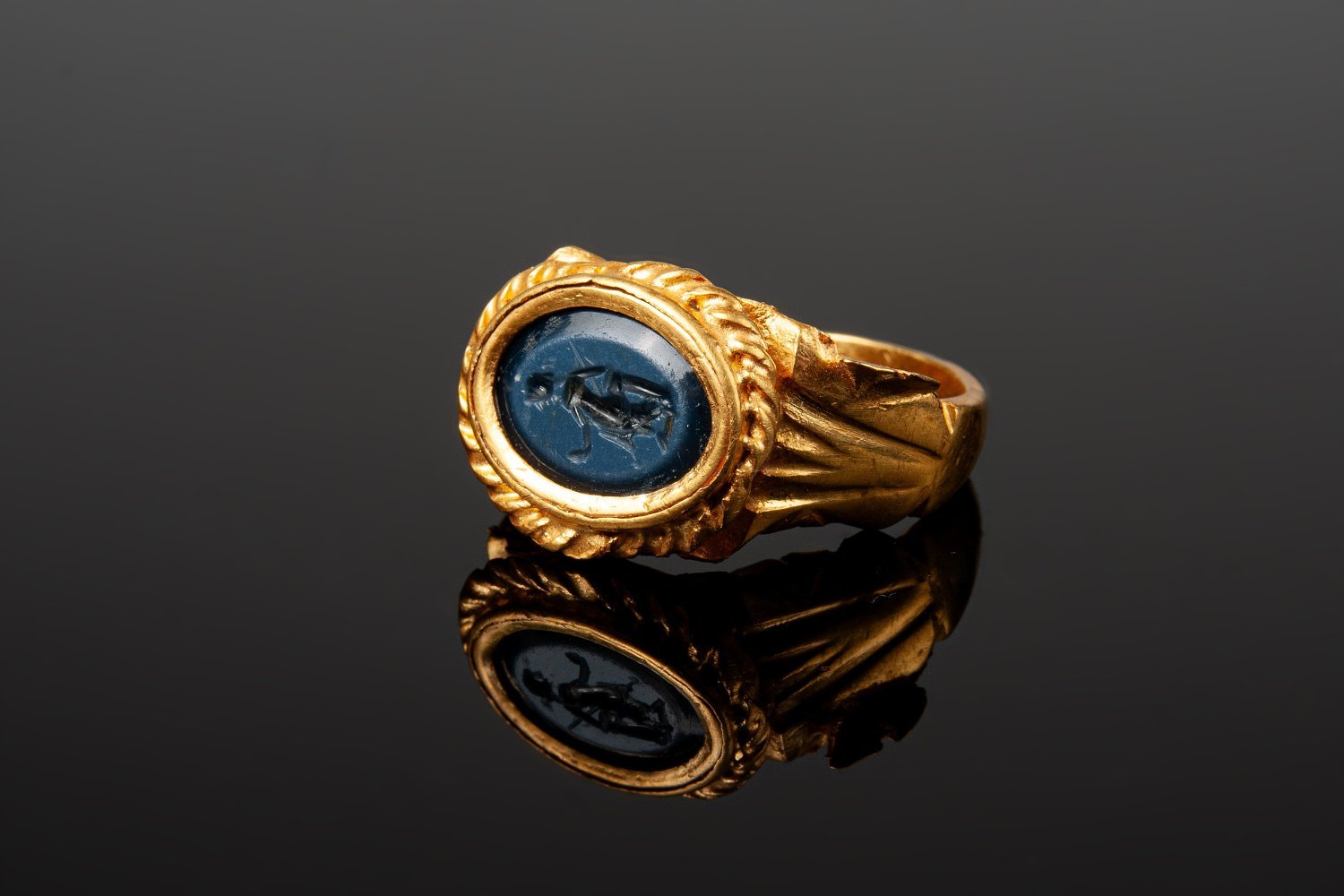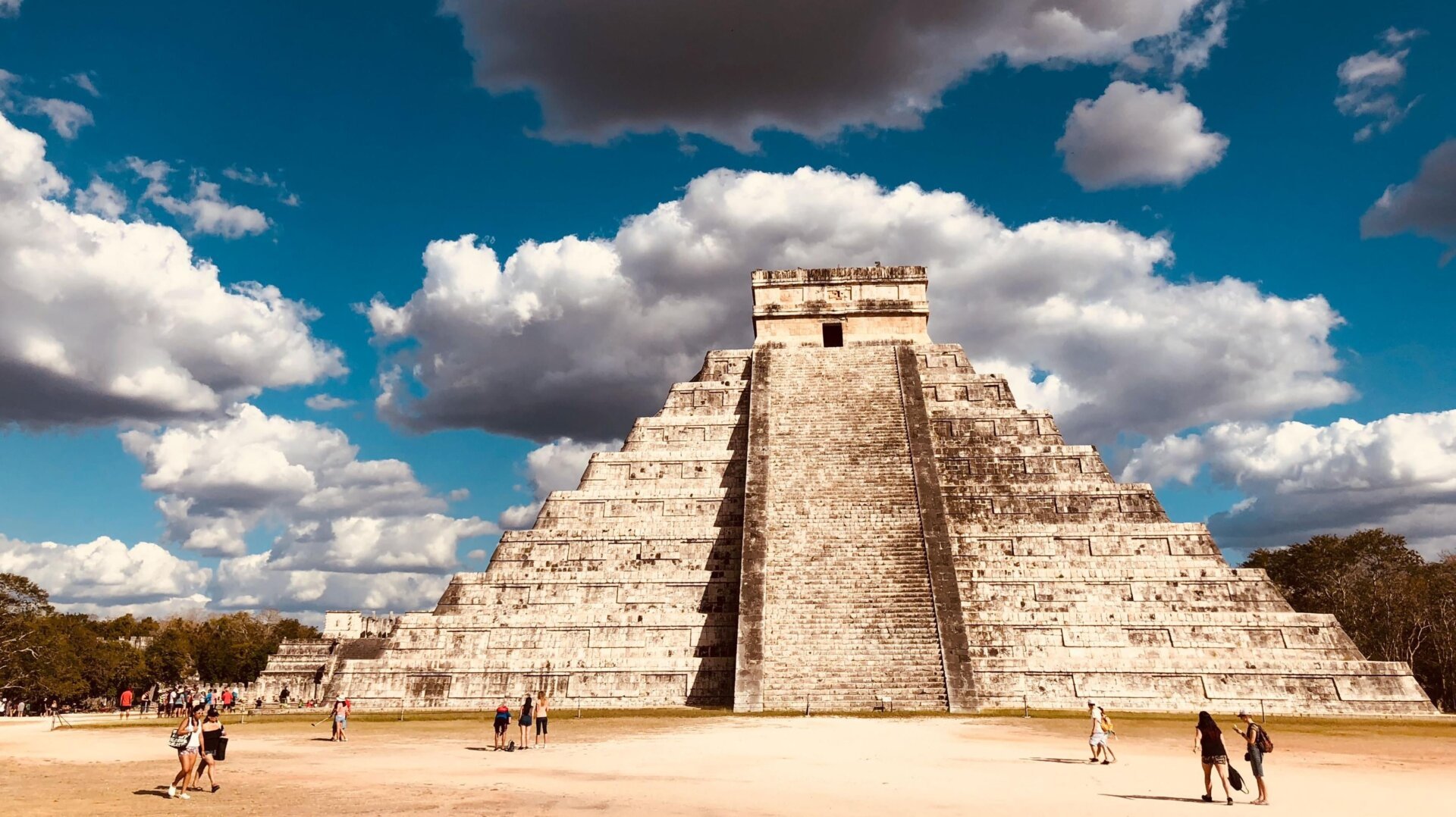The oldest known liquid wine has been unearthed within a Roman mausoleum in Carmona, southern Spain. Discovered in 2019, analysis reveals a white wine, now reddish-brown due to centuries of chemical reactions, mixed with the cremated remains of a Roman man.
The wine was found inside an urn within the tomb. Recent archaeochemical analysis, published in the Journal of Archaeological Science, confirmed the liquid’s viticultural significance. Researchers identified seven polyphenols within the liquid—biomarkers present in wines—matching those found in modern Spanish wine regions. The absence of syringic acid, however, suggests the wine was originally white, its current color a result of aging and interaction with the cremated remains.
The liquid’s pH of 7.5 is significantly higher than modern wines from the region, likely due to extensive decomposition. Its mineral profile resembles sherry wines from Jerez, Andalusia, and several fino varieties.
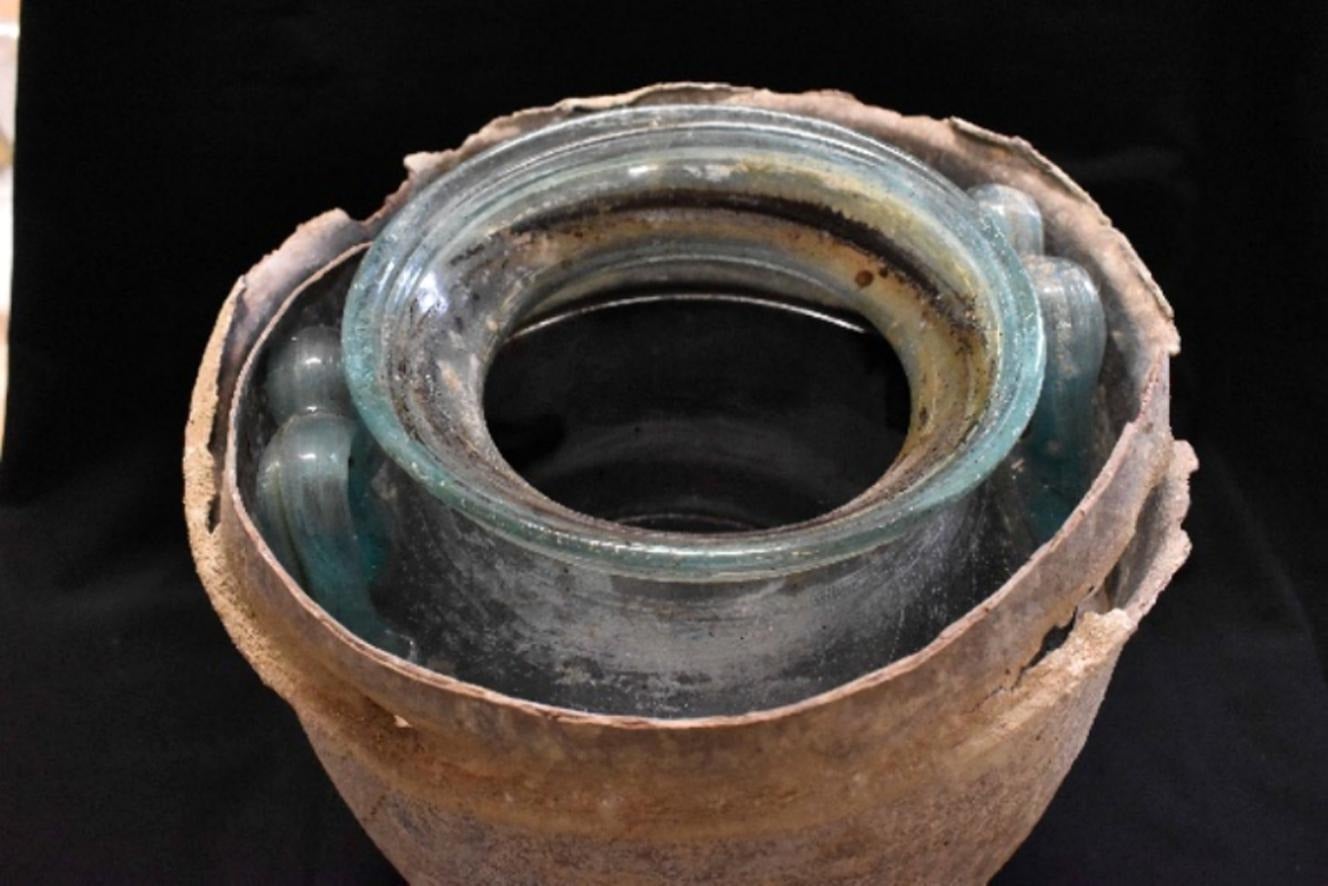 The top of the glass jar that contained ancient liquid wine.Ancient Roman Wine Discovery: The glass jar containing the oldest known liquid wine. (Photo: Cosano et al. 2024, the Journal of Archaeological Science: Reports)
The top of the glass jar that contained ancient liquid wine.Ancient Roman Wine Discovery: The glass jar containing the oldest known liquid wine. (Photo: Cosano et al. 2024, the Journal of Archaeological Science: Reports)
The wine also exhibits higher potassium levels than current wines, potentially attributable to the presence of cremated remains. This finding underscores the unique burial practice of interring the Roman man with wine.
According to the University of Cordóba, the remains belonged to a male, aligning with ancient Roman customs where women were prohibited from drinking wine, a practice that extended to Roman Spain. A second urn in the mausoleum containing female remains held amber gemstones, perfume, and silk fabric remnants, but no wine.
This discovery marks the oldest instance of liquid wine ever found. While not safe to drink, it represents a significant advancement over previous findings of dried wine residues in ancient pottery. In 2017, the oldest evidence of grape wine-making, dating back 8,000 years, was discovered in pottery fragments from Georgia. While winemaking predates Roman times, preserving liquid wine for millennia is exceptionally rare.
Close-up of the ancient liquid wine inside the glass jar.Analyzing Ancient Wine: A close-up view of the ancient liquid wine within its glass container. (Photo: Cosano et al. 2024, the Journal of Archaeological Science: Reports)
The researchers were unable to identify the specific grape variety used, preventing precise classification of the white wine. While tasting is out of the question, this discovery offers a fascinating glimpse into ancient Roman viticulture and burial practices.
In conclusion, this discovery of the oldest liquid wine provides invaluable insights into ancient Roman culture and winemaking. The unique preservation of the wine, along with its context within the mausoleum, sheds light on social customs and burial practices of the time. While further analysis may reveal additional details, this finding represents a remarkable contribution to archaeological and viticultural understanding.



